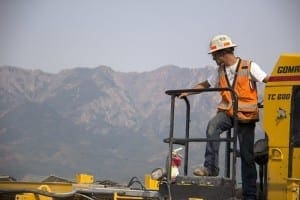Last week I covered several elements of commercial general liability insurance commonly requested for subcontractors. As liability continues to increase and general contractors become more wary of taking on responsibility for the work of subs, expenses continue to be heaped upon the subcontractor. Ensuring compliance with these insurance requirements will assist your company in continuing to find work, but understanding the risks of these insurance clauses will help you avoid potential insurance claims or lawsuits.
Waivers of Subrogation
Contractors, in another attempt at protecting their own policy limits by shifting claim payment responsibilities to subcontractors, may ask you to provide a waiver of subrogation on your commercial general liability insurance and worker’s compensation policies. Whenever an insurance company pays a claim on behalf of an insured policyholder, the insurer assumes the right to recover all or part of the claim payment from a potentially-responsible third-party. For example, while on the job a general contractor’s employee drops a wrench from an elevated location, which hits one of your employees. Your worker’s compensation company will pay for the costs incurred by your employee, but will then attempt to “subrogate” or recover the money paid from the general contractor, since their employee was responsible for the claim. But because the general required you (the subcontractor) to provide a waiver of subrogation in favor of the general contractor, your insurance company cannot recover against the general contractor. In Utah, this waiver only applies to the employer’s.
right to recover; the insurance company can still choose to subrogate against the negligent third party. However, the waiver is largely meant as a benefit to the general contractor. As the subcontractor, your experience modification factor (EMOD) may become impacted by this as claim experience will be placed upon you, and can’t be offset by contributions from the general contractor.
Evidence of Insurance/Certificates of Insurance
All general contractors will ask you to provide evidence that you’ve complied with the insurance requirements in the contract. The most common display of compliance is providing a Certificate of Insurance. This serves largely as a record keeping practice among general contractors as it gives them the necessary information to know the extent of your coverage. If there is a claim on the job because of the work done by you or your employees, general contractors want the protection afforded under your policies. If a subcontractor has no insurance coverage, the general will be responsible for claims resulting from your work. The resulting impact of this may be that their premiums increase, even though they weren’t responsible for the losses not covered under their subcontractor’s policies. Each of these are common strategies used by larger general contractors in an effort to reduce overhead and control expenses. While it may not be an ideal setup for smaller businesses working as subcontractors, it ensures that you’ll continue to find work. Insurance can be a boon from a protection standpoint as well as an income guarantee.


